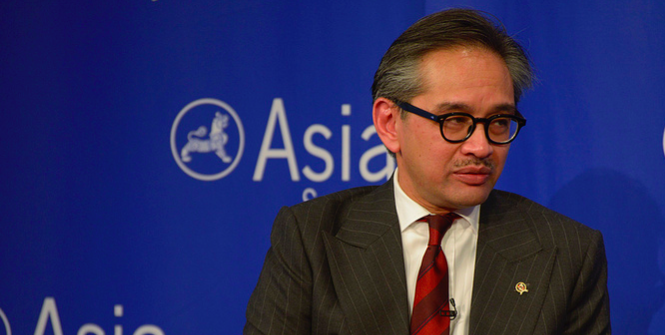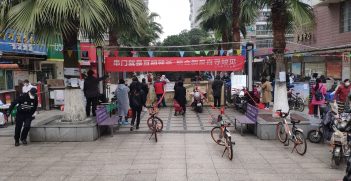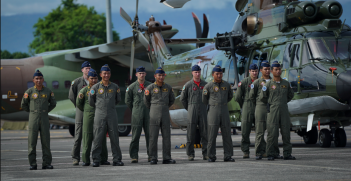Indonesia’s Deft Diplomacy Pays Dividends

A former Indonesian Foreign Minister says a combination of soft power and hard power is defining Indonesia’s membership of ASEAN.
Indonesia’s experience within ASEAN has been that leadership in a world of sovereign states must be earned and nurtured, not imposed at will.
Geographically, demographically and economically speaking, Indonesia constitutes a significant part of ASEAN. But these elements do not automatically translate on their own into influence and leadership. The geopolitics and geo-economics of the Southeast Asia region depend on skills of statecraft and diplomacy: these are the qualities which translate the potential for leadership into reality. Indonesia’s approach has been to apply smart power — namely, a combination of soft power and hard power, together with a readiness to provide intellectual and policy leadership.
Drawing lessons from the past, and driven not least by a keen interest not to repeat the shortcomings of larger countries, recent Indonesian foreign policy has crafted a more nuanced, calibrated and deft approach to leadership within ASEAN. This is an approach which places primacy on the promotion of trust and confidence in Indonesia within ASEAN. Rather than being a country that throws its weight around, Indonesia’s diplomacy follows the maxim that ‘less is more’ and so is often more effective in influencing outcomes. Indonesia’s approach is that of a country which can be entrusted to promote the common interests of the region. In ASEAN parlance, it seeks to be a country that works at the ‘comfort level’ of its regional peers.
At the risk of oversimplification, three themes at the national, regional and global levels illustrate Indonesia’s leadership in ASEAN over the recent years.
The first is the introduction of the subjects of democracy and human rights in ASEAN discourse through the ASEAN Political-Security Community (APSC), one of the three pillars of the ASEAN Community (the others being the ASEAN Economic Community and the ASEAN Socio-cultural Communities). The discourse was adopted in 2003 during Indonesia’s chairmanship of ASEAN as part of the Bali Concord II platform.
While there is clearly a fair way to go to attain the kind of democratic community envisaged in the APSC, it is not possible to exaggerate the fundamental significance of the APSC vision. No longer can there be a blanket disregard of developments within each individual member state given that ASEAN now constitutes a ‘community’ or even a ‘family’. For Indonesia, the ‘democratisation’ of ASEAN, while naturally occurring at different speeds, has been essential to ensure that there is no ‘disconnect’ between regional level developments and Indonesia’s national level democratisation since 1998.
Indonesia’s leadership in strengthening ASEAN’s democratic architecture has not been limited to the building of norms and principles, through documents such as the ASEAN Human Rights Declaration, as well as institutions such as the ASEAN Intergovernmental Commission on Human Rights. Indonesia has also made significant strides in promoting certain practices, such as transparency around internal sovereign developments at ASEAN meetings, in the hope that they will generate a ‘demonstrative spill-over effect’ elsewhere. It is noteworthy, for instance, that the acceleration of reform in Myanmar in 2011 took place during Indonesia’s chairmanship of ASEAN. This was the result of, among other things, a judicious combination of policies, formal and informal, regional and bilateral, which in total helped create conditions conducive for further reform.
A second illustration of Indonesia’s leadership in ASEAN has been on the issue of regional architecture. In recent years, Indonesia has been at the forefront in ensuring that the group’s much-cited principle of being in the ‘driving seat’ of regional integration is tangibly realised in the association’s engagement with its external partners. In this way Indonesia has, again in a judicious and consensus-building manner, sought to provide leadership in ASEAN. Hence, its vision of an East Asia Summit that included India, Australia and New Zealand, rather than one that was limited to the ASEAN+3 (China, Japan and the Republic of Korea), came to fruition in 2005. In the subsequent evolution of the EAS, Indonesia was able to achieve the concurrent admission of Russia and the United States in 2011, representing the realisation of its ‘dynamic equilibrium’ policy. Indonesia has also been successful in having the EAS adopt the so-called Bali Principles in 2011 that inter alia provide for peaceful settlement of disputes and the non-use of force among EAS members.
Indonesia’s leadership on regional security has clearly extended beyond regional architecture-building. A case in point was its role in managing the real potential for conflict between Cambodia and Thailand in 2011 over the disputed Preah Vihear temple in the border region. Another was its unprecedented ‘shuttle diplomacy’ in 2012 that helped restore ASEAN unity on the issue of the South China Sea through the adoption of the so-called ‘Six Point Principles’.
And Indonesia’s leadership took ASEAN cooperation to a higher level through the Bali Concord III of 2011. The ‘ASEAN Community in a Global Community of Nations’ envisions a common ASEAN approach to addressing global issues. Much like the Bali Concord II, the Bali Concord III aims to ensure synergy between Indonesia’s increasing global reach and the region’s own global-level ambitions and aspirations. This is a true reflection of Indonesia as a regional power with global interests.
For Indonesia, leadership in ASEAN has had to be earned through sound policies. To successfully navigate, and indeed lead, the dynamic ASEAN framework has more often required quiet rather than megaphone diplomacy; an ability to master informal rather than formal channels of communication; and an emphasis on common rather than narrow interests. Last but not least, embracing a leadership role in ASEAN demands the capacity to be forward-looking — to shape and mould — rather than just react to developments.
Leadership in ASEAN is a process, not an event. It is one quite distinct from ASEAN chair alone. It must be nurtured, and above all, it must be earned.
M. Marty M. Natalegawa was Foreign Minister of Indonesia from 2009 to 2014. This article originally appeared in the most recent edition of the East Asia Forum Quarterly, ‘Leadership in the region‘, and was republished on the East Asia Forum on June 22, 2015. It is republished with permission.





